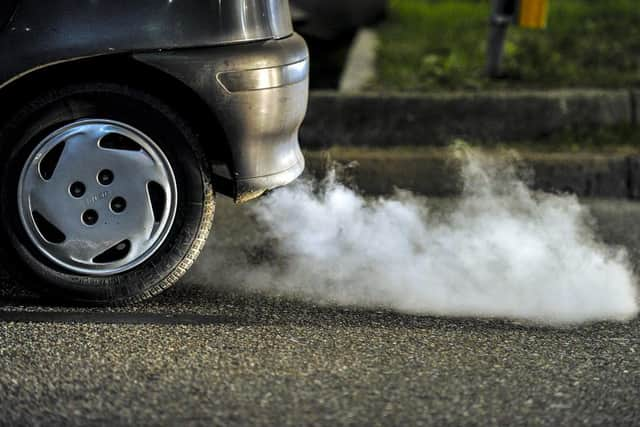Scottish Government to meet with Glasgow taxi drivers over low emission zone fears
and live on Freeview channel 276
Glasgow MSP Pam Duncan-Glancy asked transport minister Jenny Gilruth about what support the Scottish Government is providing to Glasgow taxi drivers ahead of changes to the city’s LEZ, during a debate at Holyrood.
New rules will come into force in June 2023, introducing tougher restrictions on vehicle emissions which will see some cars banned from entering the LEZ - which covers the city centre.
Advertisement
Hide AdAdvertisement
Hide AdThe changes will affect taxis, and there are fears thousands of taxi drivers will not be able to meet the new restrictions and could be put out of work.
Ms Gilruth said: “To help taxi drivers prepare for low emission zones, the Scottish Government offers grant funding towards retrofitting taxis to the latest Euro-6 standard through the low emission zone support fund.


“Those grants provide up to 80% of the capital costs of retrofitting, which is capped at £10k per vehicle.”
She said the support fund has made more than £5.5m available to households and businesses, with a further £5m being made available for 2022/23.
Advertisement
Hide AdAdvertisement
Hide AdShe added: “I understand the challenges that the introduction of LEZ present to taxi drivers, and I have agreed to a meeting with taxi reprensetatives and unions to discuss the matter further.”
Ms Duncan-Glancy said that many Glasgow taxi drivers felt the support was “not enough”.
She added: “Taxis provide employment, as well as an essential service for people in Glasgow to get around, especially disabled people who cannot access other forms of transport.”
She said was “deeply concerned” that there are a limited number of second-hand taxis available to meet low emission standards, and asked what other actions the Scottish Government is doing to help taxi drivers upgrade their vehicles, make sure they are not paying “extortinate” amounts for new ones, or aren’t forced out of the trade.
Advertisement
Hide AdAdvertisement
Hide AdMs Gilruth noted that the Glasgow taxi fleet consists of a “significantly higher” number of older taxis than other areas of Scotland.
She spoke about the funding that is available, adding: “I’m meeting with taxi drivers and unions soon to discuss this in more detail and to look at what more support we might be able to offer.”
MSP Kaukab Stewart praised the scheme, said there would be “challenges for some”, but argued there would be “significant benefits”.
She asked about the benefit it would have on air quality in the city centre.
Gilruth said the changes would “significantly reduce harmful transport emissions in parts of the city centre” and would contribute to meet emission reduction targets.
Comment Guidelines
National World encourages reader discussion on our stories. User feedback, insights and back-and-forth exchanges add a rich layer of context to reporting. Please review our Community Guidelines before commenting.
